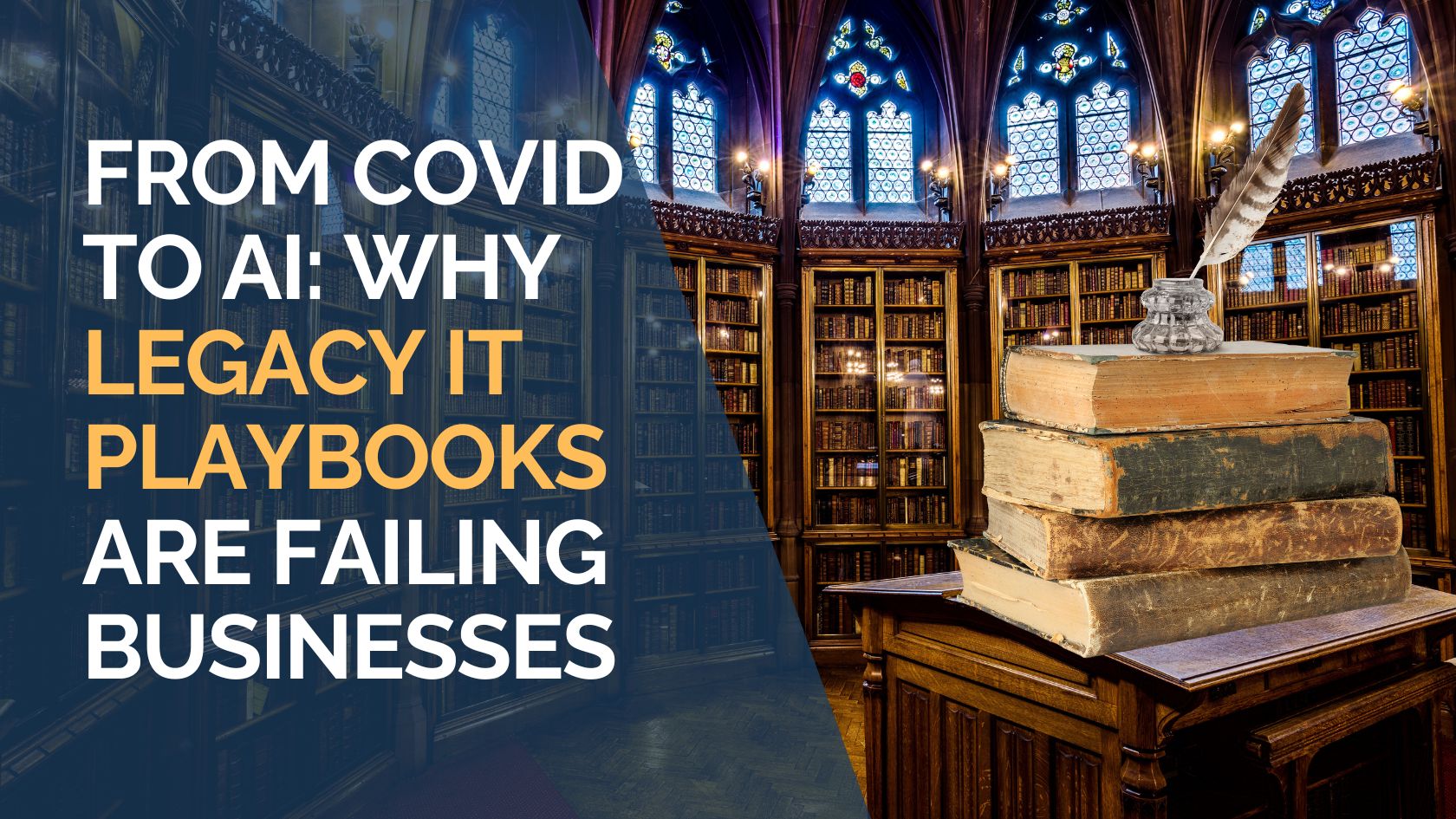The past few years have made one thing painfully clear: too many businesses are still relying on outdated IT playbooks. What worked in the past no longer holds up in a world defined by disruption, rapid change, and accelerating technology.
COVID-19 was the first wake-up call.
Overnight, entire workforces had to shift from office cubicles to living rooms and kitchen tables. Companies that were still tied to on-prem servers, clunky VPNs, and rigid processes struggled to make the switch.
Instead of enabling business continuity, IT became a bottleneck. Leaders were left asking a frustrating question: Why weren’t we ready for this?
At Stringfellow, we saw the opposite. Because we had been building and refining a process-driven playbook from the beginning, our clients were able to move to remote work almost instantly—without disruption.
The lesson was clear: when IT is built on the right foundation, it doesn’t just respond to change, it enables it.
The Next Stress Test: AI
Now, the rise of artificial intelligence is exposing the same weaknesses in traditional IT models. Many IT organizations and MSPs treat AI as a shiny add-on—flipping on a feature here, buying a license there—without the workflows, infrastructure, or strategy to unlock real business results.
The issue isn’t with AI itself. It’s with the reliance on outdated models and the skill sets of IT teams that were trained in a pre-cloud era.
Just as old VPNs failed to support the demands of remote work, yesterday’s IT thinking isn’t enough to unlock tomorrow’s AI opportunities.
AI should not be viewed as a magic bullet—or as a threat to jobs.
Done right, it’s a force multiplier: an accelerant for business processes, a way to automate repetitive tasks, and a tool to free up human talent for higher-value work.
But without a modern playbook, AI investments become expensive experiments that fail to deliver.
Why Legacy IT Playbooks Are Out of Step
- Reactive firefighting has replaced strategic planning. Too many IT teams spend their time patching problems rather than building future-ready systems.
- Pre-cloud experience holds back innovation. Professionals who learned IT in the server room often struggle to adapt to modern, cloud-first workflows.
- Tool reselling over outcomes. Many MSPs focus on selling licenses rather than solving business problems, leaving leaders with more tools than results.
- People- and tool-centric approaches miss the point. What matters is process—the repeatable, scalable way technology is deployed to drive business value.
What Leaders Should Do Next
The takeaway for business leaders is clear: your technology strategy must be rooted in a forward-looking playbook, not outdated habits. That means asking the right questions:
- Does our IT partner prioritize process over products?
- Are we leveraging AI to reduce friction in our workflows—or just layering on more tools?
- How are we reinvesting the time and efficiency gains from automation into higher-value work and better employee experiences?
The businesses that thrive in this next wave of digital transformation won’t be the ones chasing shiny new tools. They’ll be the ones with a modern IT playbook that makes change an advantage, not a disruption.
Ready to move beyond outdated IT habits?
At Stringfellow, our process-driven playbook is designed to help growing businesses embrace modern technology, harness AI, and focus on what matters most—growth.






